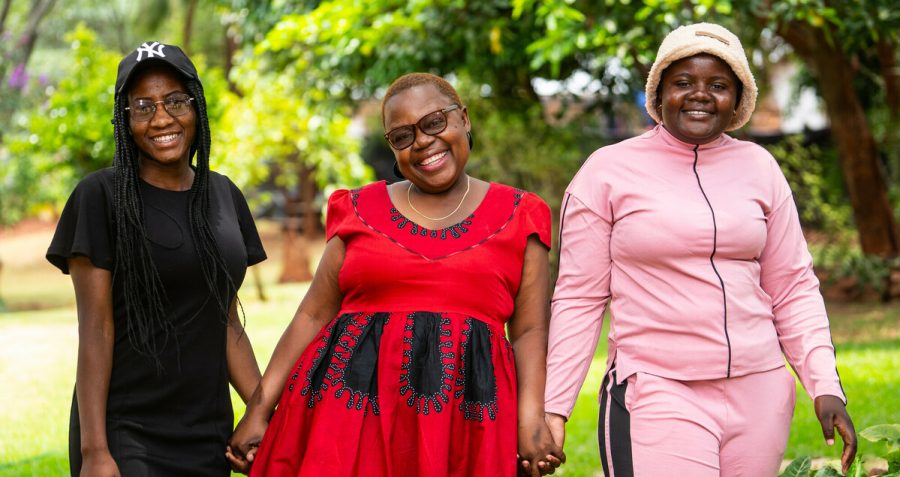Championing comprehensive sexuality education in a changing landscape

Frontline AIDS has launched a new messaging framework to support those working to protect and promote comprehensive sexuality education (CSE).
Our new CSE framework is arriving at a critical moment. Across the globe, disinformation is spreading fast, funding for HIV prevention programmes is being cut, and well-organised anti-rights movements are working to roll back decades of progress on gender equality and sexual and reproductive health. In this climate, we need to be louder, clearer, and more united than ever.
TAILORED CSE MESSAGING FOR FOUR KEY AUDIENCES
This framework is designed to help advocates speak about CSE with confidence and clarity, offering tailored messages for key audience groups: young people, parents and caregivers, government policymakers, and cultural, traditional, faith and religious leaders. In a context where anti-rights actors are gaining ground, we need messaging that not only informs but also connects and resonates with others.
CSE is a smart investment. It strengthens public health systems, improves education outcomes, and contributes to economic development. When young people are equipped with the knowledge and skills to make informed choices, they’re more likely to stay in school, avoid early pregnancy, and participate fully in society.
National governments can no longer rely on international funding to sustain HIV prevention efforts. The time has come to take ownership of the response. CSE offers a proven, cost-effective way to protect the next generation and build healthier, more resilient communities.
But the case for CSE isn’t only economic, it also about values. CSE protects and empowers young people. It is rooted in African traditions of love, care, and collective responsibility. These are values that bind families and communities together.
Supporting partners to speak with one consistent voice
Frontline AIDS and partners developed this framework because there is a gap. In conversations with our partners in Kenya, Malawi, Nigeria, South Africa, Tanzania, Uganda and Zambia, and discussions with regional partners such as EANASSO and Y+ Global, it became clear that whilst the need for CSE is urgent, the messaging around it is often fragmented or reactive. We needed a way to cut through the noise and speak directly to the concerns of communities, governments and young people themselves.
Martha Clara Nakato, a youth advocate in Uganda, explains why this framework is so important:
This framework gives us more than words; it gives us a united voice. It will help us move past defensive debates about CSE being a ‘Western agenda’ and reframe it as a shared African value. Using evidence-based messaging alongside personal stories and testimonies, we can effectively engage government leaders, faith institutions, and communities with confidence, showing that CSE is not controversial, it is critical and lifesaving.
The framework was shaped through a collaborative process, with partners testing and refining the messaging based on their own experiences and the realities they face day-to-day in their communities. It pulls together simple, yet adaptable messages for different audiences. It’s built to be flexible, recognising that the language of CSE can often be sensitive, or highly politicised, in different contexts. The framework helps advocates navigate these challenges while staying focused on shared values.
Challenging disinformation
The urgency behind this work cannot be overstated. Well-funded and resourced anti-rights actors are actively spreading disinformation, falsely linking CSE to promiscuity and the promotion of LGBTQ+ rights. They fuel fear and confusion, pressurising governments to remove CSE from policies and denying young people access to the information they need to stay safe and healthy.
As Philip Idoko, Senior Programme Officer at Education as A Vaccine in Nigeria and a key contributor to the framework, explains these narratives are not just misleading, they are dangerous:
Disinformation fuels stigma and misinformation about CSE undermining trust in evidence-based CSE programmes. It complicates outreach and reduces parental support for programmes.
Martha reiterates this concern:
Disinformation continues to fuel fear, stigma, and mistrust… It convinces communities that CSE promotes promiscuity rather than protecting young people. This has silenced critical conversations and left adolescents and young people vulnerable to HIV, early pregnancy, and abuse.
Responding to a new AIDS emergency
At the same time, funding for HIV prevention is in crisis. Clinics are closing and outreach services are being cut. This is happening just as progress on reducing new infections among young people is slowing. Currently, around 84% of adolescents living with HIV are based in sub-Saharan Africa, and adolescent girls still account for most new infections in the region. Without urgent action, we risk erasing decades of progress.
CSE remains one of the most effective tools to prevent HIV, reduce risky behaviours, and protect young people. When delivered well and holistically, it delays the age at which young people start having sex, prevents HIV and other sexually transmitted infections, and gives young people the knowledge and confidence to make informed choices. It’s not just a health intervention, it’s a rights-based approach that empowers young people to take control of their futures.
What’S next?
We’re calling on advocates, educators, policymakers and community leaders to use this framework, whether that’s in classrooms, community meetings, media work or policy spaces. We’re eager for advocates to use it to train others, challenge disinformation, and share stories that show how CSE changes lives.
Let’s speak up together to protect the rights, health and futures of young people.
View and download the full framework HERE.
Edit and download social media cards on Canva HERE.
Tags
Adolescent girls and young womenAdolescents and young peopleComprehensive sexuality education (CSE)HIV preventionSexual and reproductive health and rights (SRHR)

